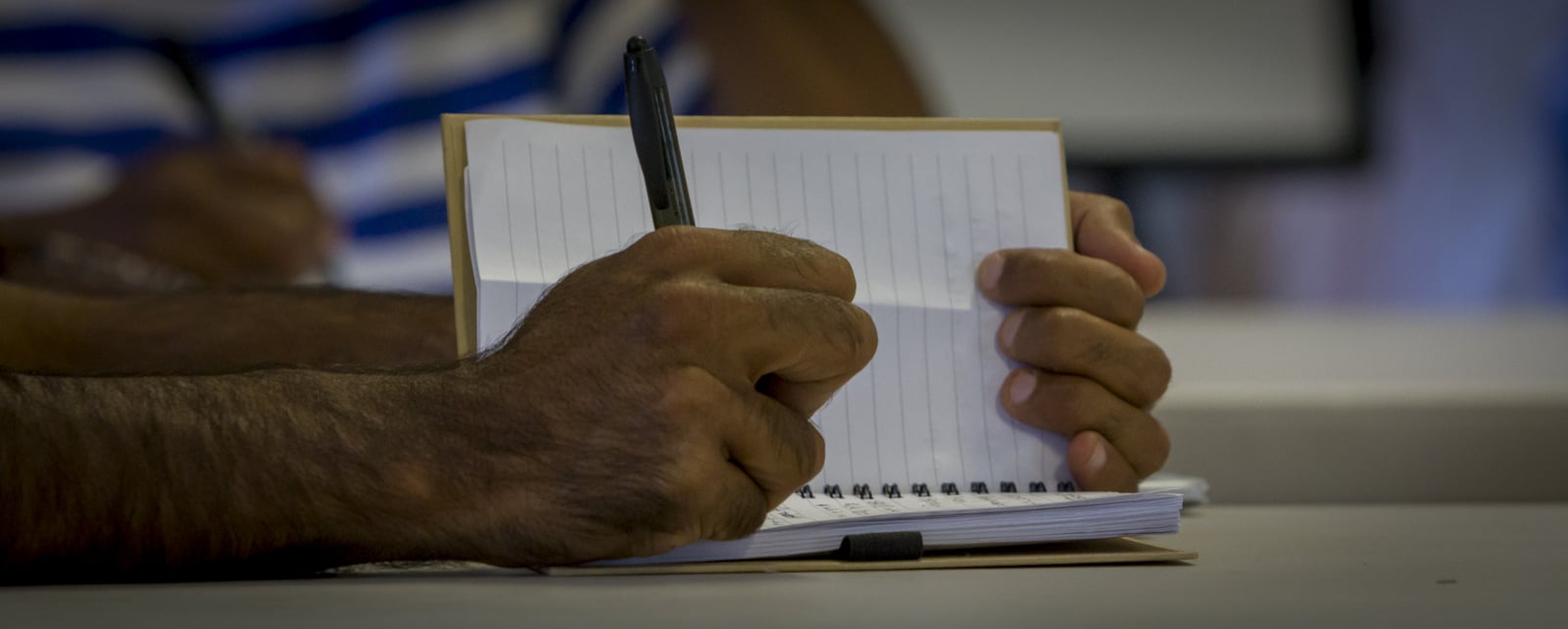A study released today has found that after participation in a Literacy for Life Foundation adult literacy Campaign, serious offences by students dropped by almost 65 per cent.
Offences overall (including serious and general offences) declined by 32 per cent. Among women, offences dropped by 50 per cent.
The research was published today in the International Journal for Crime, Justice and Social Democracy and was produced by academics from UNSW and UNE, working with Aboriginal organisations Literacy for Life Foundation and the Lowitja Institute. Aboriginal leaders of those organisations, Jack Beetson and Pat Anderson, were part of the research team. Other authors included UNE and UNSW academics in the areas of Law, Education and Health.
The study was a “before and after” study – looking at six communities in NSW. (Wilcannia, Enngonia, Bourke, Brewarrina, Boggabilla and Toomelah)
It included 162 participants, students in Literacy for Life Foundation’s Aboriginal adult literacy Campaign.
The research used a mixed-methods approach, drawing on linked data held by the NSW Bureau Of Crime Statistics And Research (BOCSAR).
Participants in the study gave consent for researchers to examine records relating to the 12 month period prior to participation in the literacy Campaign, and to compare those to the 12 month period after participation.
In addition to the BOCSAR data the study also included information drawn from more than more than 100 interviews with students, staff, community members and people working in the justice system.
Of 169 participants who completed the literacy Campaign in the six study communities, 162 (96%) gave informed consent to access their justice system data.
From the 162 consenting participants, 92 (60 women and 32 men) had at least one record in the 12-month period before or after campaign completion and formed the main study group.
This represents 57% of the sample recording an offence in a 12-month period. By comparison, 13,378 Aboriginal and Torres Strait Islander offenders, or 7% of the general NSW Aboriginal and Torres Strait Islander population aged 10 years and over were proceeded against by police in 2019-20 (ABS 2021).
This comparison of 57% of literacy Campaign participants with 7% of the wider Aboriginal population 10 and over in NSW further highlights the correlation between low adult literacy and contacts with the police.
KEY RESULTS
The total offences recorded declined from 71 to 48 (decrease of 32%).
Total offences halved among women (from 40 to 20).
The largest reductions in offences related to traffic (-50%, from 14 to 7), public order (-56% from 9 to 4) and theft (from 5 to 0).
The total number of assault offences reduced by more than half in women from 12 to 5, and increased from 5 to 14 in men. Serious assault offences in men remained unchanged and serious assault offences in women declined.
The study authors explore possible reasons for the results and identify findings that may require additional examination to provide more detailed context.
In the past, research on Literacy for Life Foundation’s work has documented a range of benefits that flow from participation in the literacy Campaign, including measurable literacy improvements, improved self-confidence and self-control, reduction in alcohol and drug use, reduced aggression, and increased sense of community and community cohesion.
